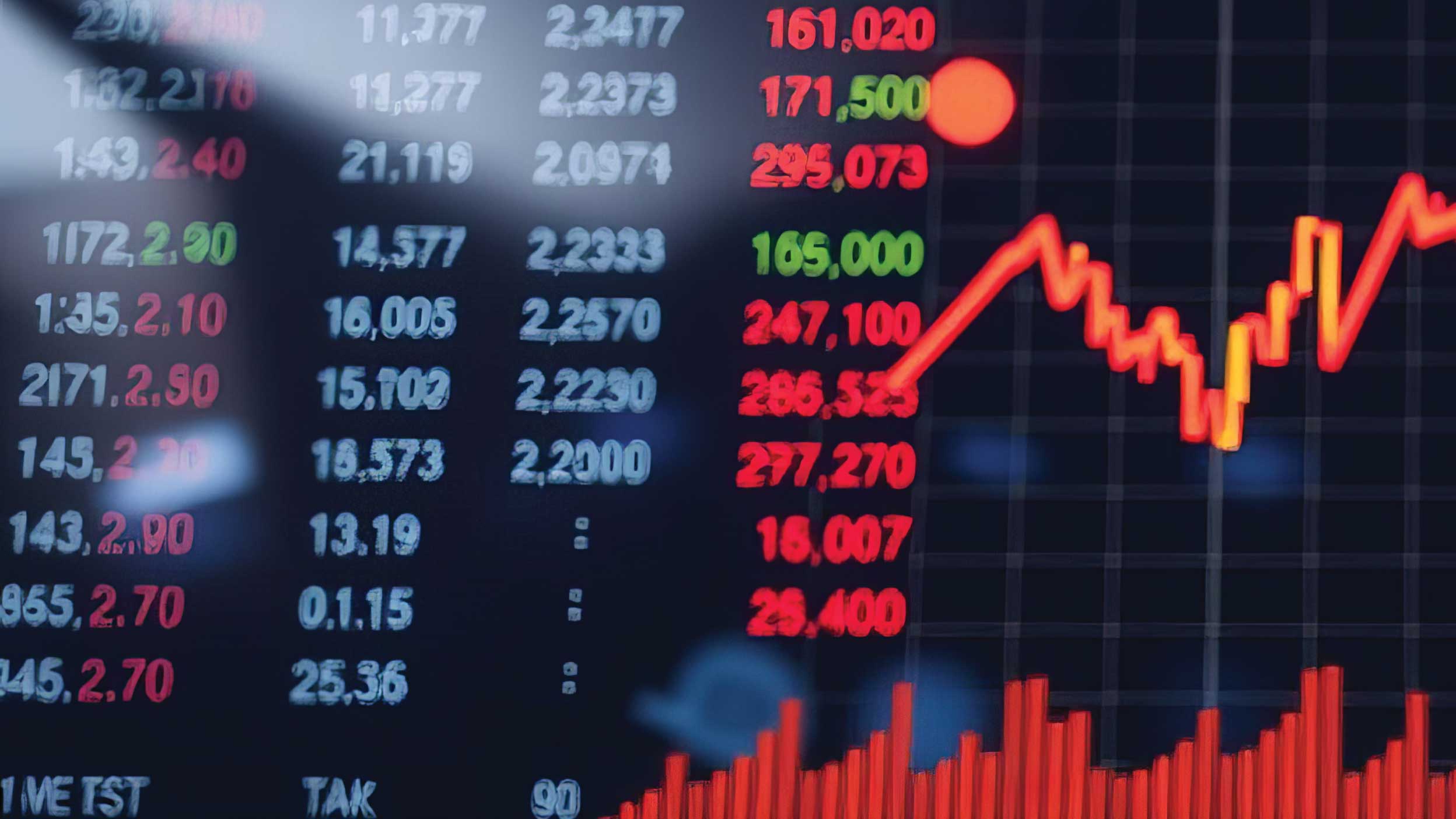Lessons for market volatility

Key takeaways
When investors try to avoid the worst days, they tend to miss some of the best days too, which can have a big impact on longer-term returns.
There are many businesses on our shopping list that we have been waiting to buy, and many great businesses are on sale.
As stock pickers, we believe we are fortunate to be able to take advantage of these situations and make decisions for the long-term benefit of investors.
Hear how our Global Equities team is approaching this period of stock market volatility and the distinct areas of opportunity they’re finding around the world.
Transcript
Hi, I'm Stephen Anness,
Head of Global Equities here at Invesco in Henley.
I just wanted to provide a bit of an update, given
the market volatility that we have seen in recent days,
to give you all views
and to tell you how we're thinking about it as a team.
I think the first thing to say is that
clearly there's volatility in the news flow
that we're seeing around tariffs.
And the potential retaliations are quite unnerving for investors.
And we've seen markets react to that.
Markets hate nothing more than uncertainty.
And we have an awful lot of uncertainty at the moment.
It would be impossible for me to stand here
and tell you that we know how this is going to evolve.
However, what I can tell you is what we're doing about it as a team.
We've seen many periods of volatility before.
As a team, we've lived through the GFC.
The COVID period, Industrial recessions in 2015 and 16,
and of course the European Debt Crisis in 2010 and 11.
And through those periods, we've remained consistent
in the way that we approach this kind of volatility.
So what are we doing about this as a team?
Well, firstly we're focusing on the long term.
We're trying to invest on a 3 to 5 year view.
And we're trying to find the best companies
with the best management teams
that we think could be substantially bigger over that period of time,
where the valuations are really quite attractive.
Secondly, that we have to retest our investment thesis.
There are clearly companies which will be impacted by the news.
And there are also companies, though,
which may be advantaged by this news,
where they don't perhaps have a direct tariff impact.
And finally, we're concentrating
our capital in our very best ideas.
This market has thrown up a number
of really exciting opportunities in businesses that we really like.
And so what we're doing is we're going line by line, company
by company,
trying to find the best opportunities that we can
and make sure that the portfolio
has sufficient allocation of capital toward those opportunities.
So clearly there are a number of things for us to consider.
Firstly, there are the first order impacts of the tariffs.
Which companies are impacted by them directly
and which companies may even be advantaged by them.
Secondly, though, we do need to consider
the second order
impacts of this,
there will be economic consequences to this uncertainty.
Companies will likely delay investment spending.
They may well change their hiring plans as well.
And so we're likely to see, I think, a slowdown
in the results of many companies in the coming period.
So what we've been doing is reallocating our capital
within the portfolio.
We have a number of companies
which have performed actually quite well during the initial phases
of this market volatility,
and we've also seen some where we think the share prices have perhaps
fallen further
than is really likely to be the impact of what we're seeing.
And so we've been steadily reallocating capital within the portfolio.
As I mentioned at the outset of this video,
we have seen a number of periods of volatility before, and often
that volatility has come
with what appear
at the time to be, frankly, very scary headlines,
which is what we're seeing at the moment.
The key point that
I'd like to make is that in all of those periods of time, volatility
has created opportunity
for us as active fund managers to deploy that capital into the fear
and ultimately
try and find those opportunities
which are likely to generate
good returns for our clients over the years ahead.
It's important to note that, as I mentioned, none of us know how
this is likely to pan out,
and therefore what we are trying to do is build a portfolio
of resilient, growing companies run by excellent management
teams that we think can perform in a number of different scenarios.
It’s hard to believe it’s been a little more than one week since President Trump announced his ‘Liberation Day’ tariff plans. We wanted to update you on how we’ve approached this tumultuous period for markets and emphasise some lessons learnt from the previous drawdowns we’ve experienced.
Two key things to understand about stock market volatility
Firstly, whether they’re driven by economics, geopolitics or valuations, stock markets are volatile, and they experience falls in almost every calendar year.
Worst drawdowns of the S&P 500 since 1978
Year |
Year |
Year |
|||
|---|---|---|---|---|---|
1978 |
-14% |
1994 |
-8% |
2010 |
-16% |
1979 |
-10% |
1995 |
-3% |
2011 |
-19% |
1980 |
-17% |
1996 |
-7% |
2012 |
-10% |
1981 |
-18% |
1997 |
-11% |
2013 |
-6% |
1982 |
-17% |
1998 |
-19% |
2014 |
-7% |
1983 |
-7% |
1999 |
-12% |
2015 |
-12% |
1984 |
-13% |
2000 |
-17% |
2016 |
-10% |
1985 |
-8% |
2001 |
-29% |
2017 |
-3% |
1986 |
-9% |
2002 |
-33% |
2018 |
-19% |
1987 |
-34% |
2003 |
-14% |
2019 |
-7% |
1988 |
-7% |
2004 |
-7% |
2020 |
-34% |
1989 |
-7% |
2005 |
-7% |
2021 |
-5% |
1990 |
-19% |
2006 |
-7% |
2022 |
-23% |
1991 |
-6% |
2007 |
-10% |
2023 |
-18% |
1992 |
-6% |
2008 |
-48% |
2024 |
-10% |
1993 |
-5% |
2009 |
-27% |
2025 |
-18% |
Source: StockWhale, Invesco as at 8th April 2025
Past performance is not a guide to future returns
It’s not just the S&P 500 — all markets experience drawdowns. But despite all of these drawdowns, as long as investors remained invested, they made very attractive long-term returns; from 1/1/1980 to 04/07/2025 the MSCI World Index has returned about 9% p.a. or 4,851%!1
The key is “Time in the market, not timing the market”. Often the best days follow some of the worst volatility, so when investors try to avoid the worst days, they tend to miss some of the best days too. And missing just some of the market’s best days can have a big impact on longer-term returns, as evidenced by the chart below:
Past performance is not a guide to future returns. Source: Bloomberg, as at 31 December 2024. Total returns in GBP. For illustrative purposes only. It is not possible to invest directly in an index.
Secondly, these periods provide stock pickers with the opportunity to add significant value. Selling is often indiscriminate, and we try to take advantage of this selling while being mindful of the risks and uncertainty of the macro environment. In simple terms, opportunity and uncertainty go hand in hand for active managers.
Three ways we’ve managed recent stock volatility
Our approach during the recent tariff-related volatility can be distilled into three key points:
- Stay focused on the long term. We can draw on our experience over the last 20 years, through the Global Financial Crisis, European sovereign debt crisis, Covid, and more. This experience helps us stay focused on the best risk/return opportunities that are presented at a stock level.
- Re-test the thesis. We aim to buy good companies that have strong balance sheets and are run by management teams we trust to take advantage of situations like this one. If any of these critical elements is no longer true, then we may recycle capital. The kind of questions we are asking ourselves are as follows: Has their market position changed? Has their industry changed? What can management do to take advantage of new opportunities?
- Concentrate our capital in the best risk/reward opportunities. It isn’t often in your career that almost every business in the market goes on sale. There are many businesses on our shopping list that we have been waiting to buy, and many great businesses are on sale. This is potentially a very exciting time for future returns. Our job is to build the best risk/reward portfolio of these companies that we can.
Three areas of opportunity for our portfolios
We have found three distinct areas of opportunity thus far:
- Companies that have been made stronger by tariffs. US tariffs on China have created a sudden demand shock for Chinese factories. Companies like 3i have historically done well during periods like these because they could take advantage of this vacuum and buy great products at bargain prices and could pass this benefit onto their consumers.
- Companies in markets that have panicked about the impact of tariffs. Canadian Pacific services Canada to Mexico by rail. Their shares have seen a 27% drawdown as the market has panicked about the effect of tariffs on their business model. During Trump’s first presidency, he enacted tariffs on these counterparties — but Canadian Pacific still grew earnings by 14.5% p.a., and its shares returned 25% p.a. vs 14.3% for the MSCI World.
- Companies that have been caught up in the sell-off despite no tariff exposure. Recordati manufactures and distributes niche pharmaceuticals, and 17% of their sales are from the US. They have grown EPS at c.10% p.a. for a decade and pay a 3% dividend yield. The shares have declined 22.5% from peak despite being one of the companies with the least risk to earnings we can think of. They now sell for their lowest P/E ratio in a decade.2
Learning from the past while managing for the future
We appreciate that some of the headlines are scary for investors, and there is a great deal of uncertainty regarding the economic and political outcomes of the current situation. However, our experience through 2008/09, the European debt crisis, Covid, and the 2022 tech wreck have taught us that the equity market has always acted as a discounting mechanism, with future information quickly assimilated into stock prices. As stock pickers, we believe we are fortunate to be able to take advantage of these situations and make decisions today that will materially benefit the long-run returns for investors.
Discover our capabilities
Stephen Anness is a Co-Fund Manager of the Global Equity Income & Growth strategy. Find out more about our fund and trust solutions, which are managed according to this strategy, below.
Related insights

How to enhance your portfolio with options-based income strategies
Options-based income strategies can be used in a portfolio to seek consistent income, diversify income sources, and reduce equity exposure while still participating in the equity market.

What are options, and how can they generate income?
Options are versatile financial instruments that can be used to generate income, manage risk, and enhance investment returns. Find out more in our latest article.

Invesco Global Equity Income Q1 2026 – video update
Discover how the Invesco Global Equity Income Strategy performed in 2025, where the managers are finding opportunities, and what’s driving their outlook for the year ahead.


